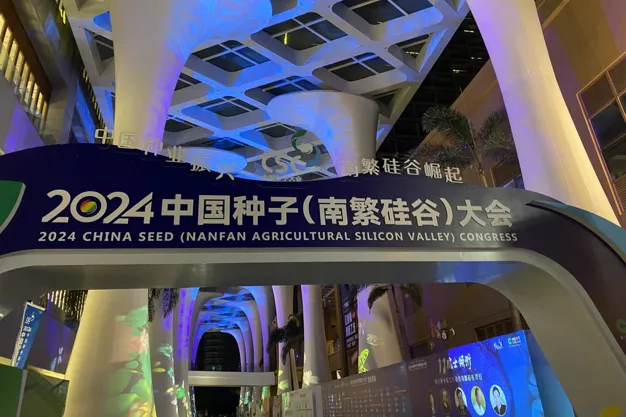Over several years, China planned and developed its new Seed Law and associated Regulations. The enactment of the 2022 Seed Law followed extensive consultations with stakeholders around the world. Impressively, submissions were welcomed and considered. The end result is a comprehensive framework of laws - well-considered and clearly articulated.
The enforcement of the 2022 Seed Law is now a focused task of the network of "IP Courts" established in China, led by the Beijing IP Court. These Courts are presided over by increasingly experienced IP practitioners.

"A critical remaining challenge which is accepted by both the Government and the Judiciary alike is the aligning of the Seed Law and the formal Court process for resolving infringements of plant variety rights with the pre-existing 'administrative complaint system,' which has been and remains overseen by the local Ministry of Agriculture and Rural Affairs ("MARA"). If the ambitions of the Government are to bear fruits and their efforts with the new Seed Law are to be recognized, this alignment must occur," explains Darron Saltzman, principal at HortIP Law, based in Melbourne, Australia.
"In the real world, China recognizes that it needs to attract foreign breeders to bring their exciting and diverse new varieties to China and to establish commercialization programs in China. Apart from the obvious desires of Chinese consumers to have access to and enjoy the diverse offerings of new varieties bred and available around the world, effectively addressing the food security issue in China through local access to new and exciting varieties offers major opportunities to many sectors in China, including nurseries, farmers/growers, marketers, and retailers."
To complement the formal aspects of protection for breeders through the Seed Law, in 2018 China proclaimed the whole of Hainan Province as a "Free Trade Zone" ("FTZ").
The Hainan FTZ opened in 2020 and has since been touted as "China's Silicon Valley" for the Chinese seed industry. The chartered Nanfan Science and Technology City now offers many benefits to research institutions and seed companies that set themselves up in or do business through Hainan. Such benefits range from streamlined importation processes and plant variety rights ("PVR") application procedures to favorable tax concessions and substantial one-off grants to companies that set up in Hainan. International seed companies which establish a wholly foreign-owned enterprise (aka "WFOE") in Hainan will also enjoy the advantages of select policies adopted for plant breeders established in Hainan. International seed companies which establish a wholly foreign-owned enterprise ( aka "WFOE") in Hainan will also enjoy the advantages of select policies adopted for plant breeders established in Hainan.
Since 2021, the 4th China IP Court has been located in Hainan.
Each year since 2021 Hainan has hosted the "China Seed (Nanfan Agricultural Silicon Valley) Congress". The Congress is held annually under the guiding ideology of the Government to develop the national seed industry and build the "Southern prosperous Silicon Valley". The Congress brings together the major stakeholders in the industry, including researchers and seed companies as well as farmers and commercial traders.
"Even before the current Seed Law, breeders such as Driscoll's had taken the plunge and established a commercialization program in China. Other breeders have followed. Currently, Sun World International - a Californian based fruit breeding company - is launching its program in China through its WFOE registered in Hainan.
"For breeders around the world, the combination of the 2022 China Seed Law and the Hainan FTZ offers exciting opportunities and allows them to play a part in the transformation of the horticulture industry in China."
For more information:
Darron Saltzman
HortIP Law
darron.saltzman@hortip.com
www.Hortip.com
